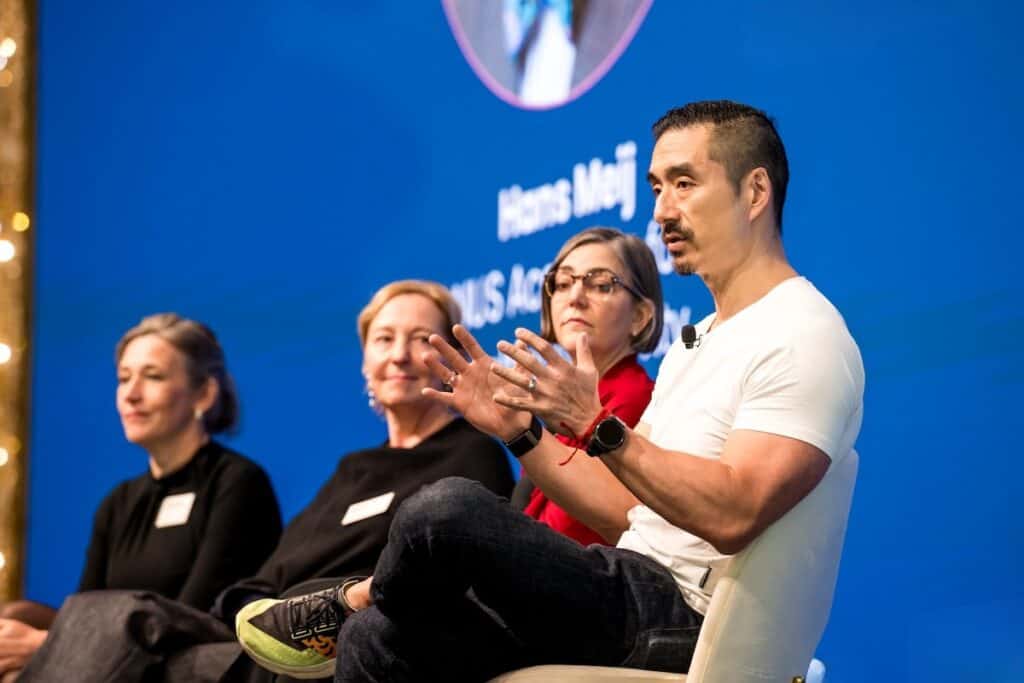Last updated on January 13, 2025
Our inaugural FF MEASA Dubai united one hundred of the world’s most impactful founders, investors, and corporate and government leaders. Read our key takeaways, covering VC investment, AI, talent, and more!
Dubai has become the world’s fastest-growing VC ecosystem, investment is booming across the MEASA region, and founders are increasingly looking to exciting new opportunities in the Middle East.
Our inaugural FF MEASA 2024, co-hosted with the Dubai Department of Economy and Tourism (DET), brought together one hundred of the most impactful people we know in this high-octane innovation hub.
Over the course of the weekend retreat, unicorn founders, top investors, and corporate and government leaders talked about everything from AI, quantum, and purpose-driven innovation, to web3, sustainability, and climate tech.
We heard Sir Tim Berners-Lee (Inrupt) share his thoughts on the next era of the internet with Joyce Baz (Google), His Excellency Helal Almarri (Dubai’s Department of Economy and Tourism) discuss Dubai’s entrepreneur-powered ecosystem with James McKelvey (Invisibly / Square), and Naveen Jain (Viome / Moon Express) talked moonshots.
Piotr Dabkowski (Eleven Labs), Sachin Dev Duggal (Builder.ai), and Yoav Shoham (AI21) discussed the open-source AI revolution, before Michael Lahyani (Property Finder), Mona Kattan (Huda Beauty), and Niklas Ostburg (Delivery Hero) reflected on their experiences scaling businesses in the MEASA region.
We learned about the future of quantum from Jack Hidary (SandboxAQ), how to build a sustainable future from Miroslava Duma (PANGAIA), Stephen Fitzpatrick (OVO/ Vertical Aerospace), and Anousheh Ansari (XPRIZE), and product strategy in the age of AI from Alex Bouaziz (Deel), Cindy Mi (VIPKID), and Sascha Konietzke (Contentful).
So what are the tech trends shaping the MEASA region and the world? Here’s our key takeaways:
1. Dubai provides an ideal environment for tech startups
Dubai is a startup in itself and its culture of positivity, rapid pace of change, and supportive government policies makes it an attractive destination for new business. Dubai’s VC arm, Oraseya Capital, plans to invest in more than 100 startups within the next five years, and has just launched a $136m fund for pre-Seed to Series B fintech startups. A convergence of talent, top scientists and engineers, and an increase in exits points to the market’s growing maturity.
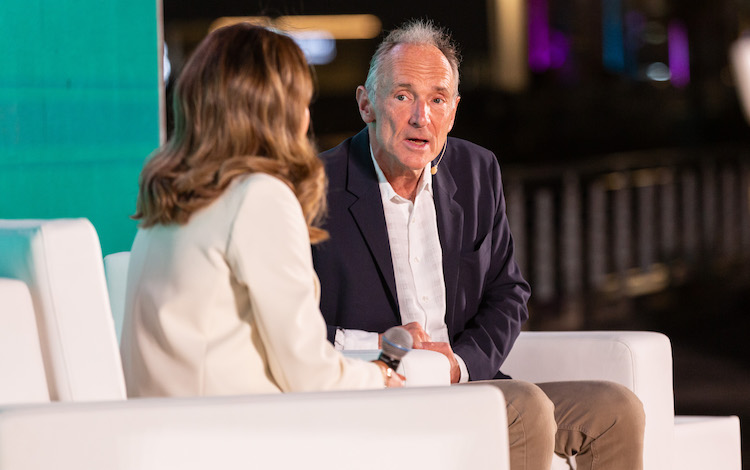
2. Public-private partnerships are catalysing innovation
Dubai’s public-private partnership model draws international talent and enables regulation to keep pace with innovation. The Government is not restrained by legacy infrastructure.
Next, Dubai should continue to play to its strengths; its digital governance capabilities and bridging position between cultures. Supporting local VCs will bring in the big players and government should support subsequent funds rather than taking an underproductive first as proof of failure.
3. There’s massive potential in new sustainable technologies
Sustainability-focused technologies have major growth potential, particularly in industries like fashion – a $3t industry, but one of the most polluting with toxic production processes and tens of millions of tonnes of dead stock being burned each year. More founders need to focus on Earth-positive business models that are better for the planet than if they didn’t exist.
Already, we have plant-based leather and regenerative materials as well as AI-optimised propellers, and technologies that transfer renewable energy from vehicles back to the grid. Across the board, achieving low-cost access to reliable renewable energy is a prerequisite for progress. We have the technologies we need to eliminate fossil fuels already. The problem is complex and contradictory regulation rather than technology.
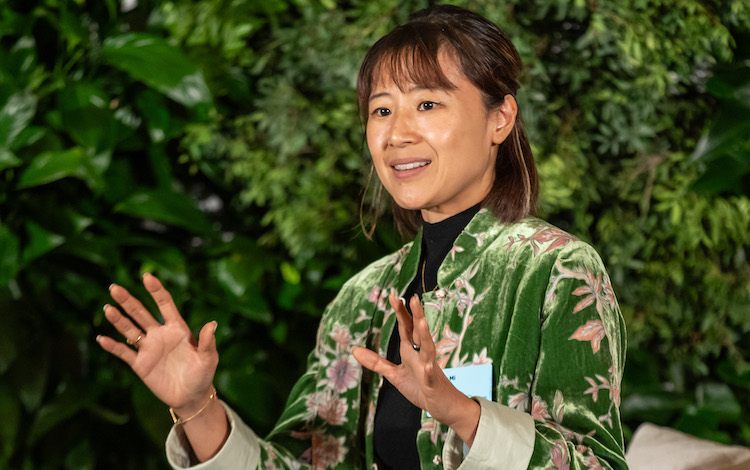
4. AI is already improving education and healthcare
The days of rote learning are over! Education systems are transitioning to more personalised, mentor-based, skills-focused, and credential-driven models, and AI is driving this change. We’re seeing personalised primary and secondary education adapted to each student’s needs and a focus on application-based learning that develops critical thinking.
In healthcare, 2024 will be the year of generative data. LLMs are cool, but novel drug discovery requires generation of new molecular data and new GPUs can be used to simulate molecule-receptor interaction. More broadly, medical data requires both deep personalisation and broad population access to train robust AI models. Building user trust and consent around health data access will be critical. We’re also seeing more preventative healthcare and tools that analyse individual microbiome data to offer tailored dietary recommendations for avoiding disease.
5. Robotics and humanoid AI will soon reach mass commercial viability
Human-life AI assistants will soon be realised at scale in the physical world. Amazon is already testing multiple humanoid retail robots, with real-world applications in logistics, mobility, and hospitality. There are humanoid robots capable of walking, running, talking, making packages, and sanitising hospital rooms.
Widespread demonstrations of robotic competencies for commercial tasks will happen in the next 1-2 years. In five years, we’ll see mass adoption of capable robotic workforces. Robots with niche applications are being piloted first. For more complex social environments and uses in the home, we need to build more robust safety protocols.
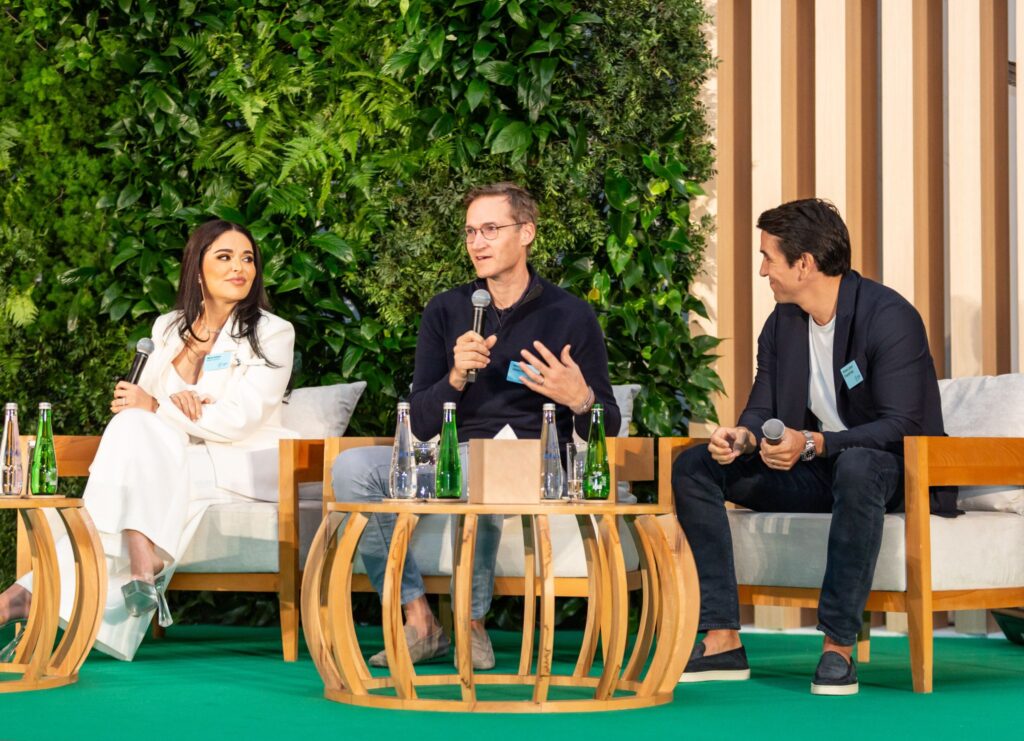
6. Responsible AI development is key, but defining regulation is a challenge
We need protections against the misuse of powerful new technologies, like AI deepfakes and encryption-cracking quantum computing. But the pace of innovation and the breadth of emerging AI innovations, spanning generative models to autonomous transport, makes regulation difficult. Overregulation also risks limiting the beneficial uses of AI.
It’s a challenge that requires a coordinated, global response, and governments need to work together to ensure progress. Regulation must shift attention from the largest foundational models and debate should include all members of society, not just the tech sector.
7. The falling cost of space transport is a game changer for space tech
In the past two decades, the cost of space transport has dropped from $20,000 per kg to around $2,000 per kg today. Within five years, this could fall to as low as $200 per kg. We’re at an inflection point and entire new categories of commercial activity in space are coming into reach – manufacturing, satellite servicing, energy production, and lunar operations.
Eventually, we’ll see logistics networks with transportation systems between planets, and space will become an extension of life on Earth. Still, there are barriers to long-distance manned travel to other planets and we may even need to augment human physiology to deal with extended periods in space.
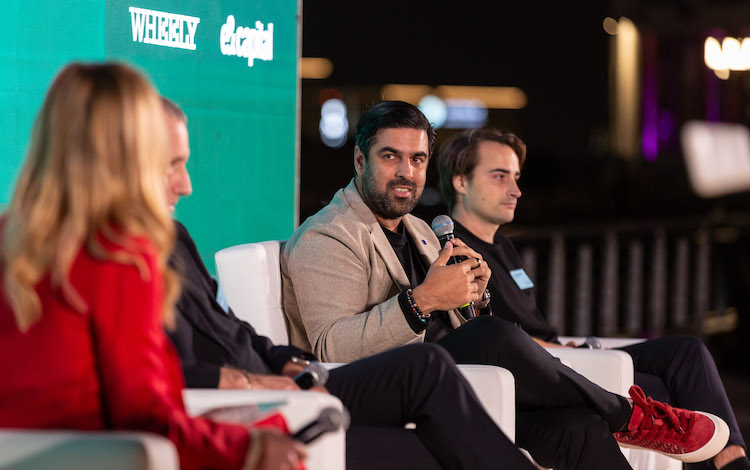
8. ‘Regulatory passports’ would catapult crypto businesses even more into the mainstream
The number of global crypto users surpassed half a billion in 2023, PayPal launched its own stablecoin, and, in January 2024, the SEC approved the first US-listed exchange traded funds for bitcoin – a massive signal of legitimacy for crypto regulators.
Crypto firms are seeing an increase in interest from investors since the SEC approval. But different national regulations and market segmentation remains the big challenge. The solution? What about a ‘regulatory passport’, which would give an accredited business permission to operate in multiple jurisdictions if approved by a respected regulatory authority?
9. Our Rising Stars are cooling the planet and democratising education
Our Rising Stars brought the FF magic to Dubai, pitching startup ideas with world-changing potential. Paul Mahacek’s Atmo Cooling is creating microclimates, which can cool natural environments by up to 15°C.
Fahim Al Qasimi’s Seafood Souq is improving the traceability of seafood supply chains while bettering the lives of fishermen. Nadine Mezhar’s SARWA is a one-stop platform for investment and personal finance, while Quddus Pativada’s ASI is building a new way to learn with AI.
Read about our Rising Stars of 2023.
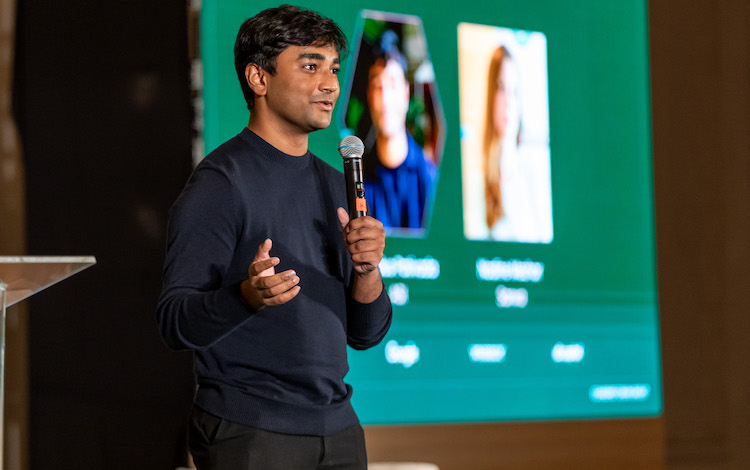
10. If you’re chasing moonshots, think beyond the box
What’s the moonshot mindset? How can you solve a seemingly unsolvable problem? Any founder building an ambitious new business needs to ask themselves three questions:
1. Why this? Would this idea help a billion people live a better life? Money is a byproduct of improving people’s lives. If the answer is yes, this will inevitably be a successful company.
2. Why now? Timing is the greatest aspect of a company’s success. What’s changed in the last 1-2 years, what do you expect to change in 3-5 years, and is the company scalable in that time frame? Why couldn’t this have been done years ago?
3. Why me? What advantage does my perspective lend me?
The key is to reinvent yourself – think of a new box, not just outside the old one. Breaking down a complex issue into smaller problems can forge a fordable bridge. Plus, remember that entrepreneurs only fail when they give up, everything else is a pivot.
That’s a wrap from FF Dubai until next year. Big thanks to our partners – DET, Google, e& capital, and Wheely – for making the weekend possible.
Click here to learn more about our flagship forums and events for founders.
 All Posts
All Posts


